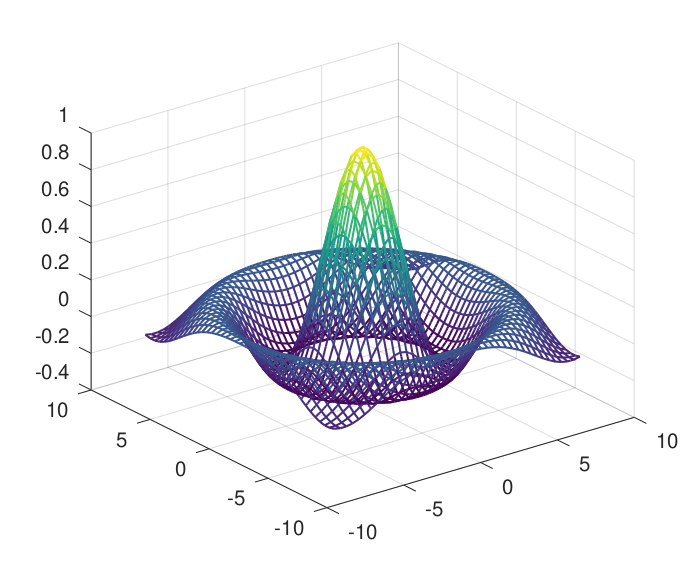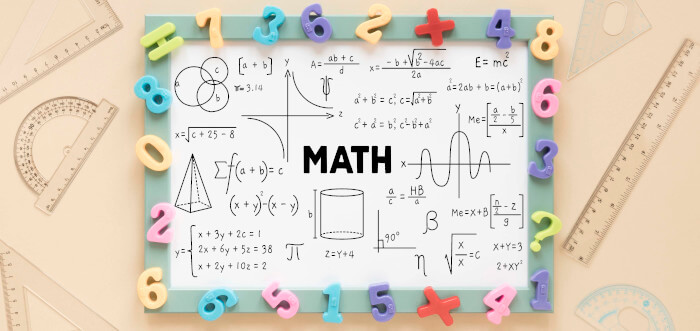Octave is a high-level language, primarily intended for numerical computations.
It provides a convenient command line interface for solving linear and nonlinear problems numerically, and for performing other numerical experiments using a language that is mostly compatible with MATLAB. It can also be used as a batch-oriented language.
Octave has extensive tools for solving common numerical linear algebra problems, finding the roots of nonlinear equations, integrating ordinary functions, manipulating polynomials, and integrating ordinary differential and differential-algebraic equations. It is easily extensible and customizable via user-defined functions written in Octave’s own language, or using dynamically loaded modules written in C++, C, Fortran, or other languages.
Octave is able to perform matrix and vector mathematics, numerically solve differential equations, and plot data uses gnuplot.
The Octave-Forge Symbolic package adds symbolic calculation features to Octave. These include common Computer Algebra System tools such as algebraic operations, calculus, equation solving, Fourier and Laplace transforms, variable precision arithmetic and other features.
Features include:
- Graphical user interface (GUI) and a integrated development environment (IDE) based on Qt.
- Command and variable name completion.
- Command history.
- Data structures.
- Short-circuit Boolean operators.
- Increment and decrement operators.
- Unwind-protect.
- Variable-length argument lists.
- Variable-length return lists.
- Profiler.
- C++ integration – run Octave code directly in a C++ program.
- Designed with MATLAB compatibility in mind with function compatibility.
- Cross-platform support – runs under Linux, BSD, macOS, and Windows.
Octave is written in C++ using the C++ standard library.
Website: octave.org
Support: Manual, FAQ, Mailing List, Repository
Developer: John W. Eaton and many contributors
License: GNU General Public License v3.0

Octave is written in C, C++ and Fortran. Learn C with our recommended free books and free tutorials. Learn C++ with our recommended free books and free tutorials. Learn Fortran with our recommended free books and free tutorials.
Return to Plotting Tools | Return to Scientific | Return to Computer Algebra Systems
| Popular series | |
|---|---|
| The largest compilation of the best free and open source software in the universe. Each article is supplied with a legendary ratings chart helping you to make informed decisions. | |
| Hundreds of in-depth reviews offering our unbiased and expert opinion on software. We offer helpful and impartial information. | |
| The Big List of Active Linux Distros is a large compilation of actively developed Linux distributions. | |
| Replace proprietary software with open source alternatives: Google, Microsoft, Apple, Adobe, IBM, Autodesk, Oracle, Atlassian, Corel, Cisco, Intuit, and SAS. | |
| Awesome Free Linux Games Tools showcases a series of tools that making gaming on Linux a more pleasurable experience. This is a new series. | |
| Machine Learning explores practical applications of machine learning and deep learning from a Linux perspective. We've written reviews of more than 40 self-hosted apps. All are free and open source. | |
| New to Linux? Read our Linux for Starters series. We start right at the basics and teach you everything you need to know to get started with Linux. | |
| Alternatives to popular CLI tools showcases essential tools that are modern replacements for core Linux utilities. | |
| Essential Linux system tools focuses on small, indispensable utilities, useful for system administrators as well as regular users. | |
| Linux utilities to maximise your productivity. Small, indispensable tools, useful for anyone running a Linux machine. | |
| Surveys popular streaming services from a Linux perspective: Amazon Music Unlimited, Myuzi, Spotify, Deezer, Tidal. | |
| Saving Money with Linux looks at how you can reduce your energy bills running Linux. | |
| Home computers became commonplace in the 1980s. Emulate home computers including the Commodore 64, Amiga, Atari ST, ZX81, Amstrad CPC, and ZX Spectrum. | |
| Now and Then examines how promising open source software fared over the years. It can be a bumpy ride. | |
| Linux at Home looks at a range of home activities where Linux can play its part, making the most of our time at home, keeping active and engaged. | |
| Linux Candy reveals the lighter side of Linux. Have some fun and escape from the daily drudgery. | |
| Getting Started with Docker helps you master Docker, a set of platform as a service products that delivers software in packages called containers. | |
| Best Free Android Apps. We showcase free Android apps that are definitely worth downloading. There's a strict eligibility criteria for inclusion in this series. | |
| These best free books accelerate your learning of every programming language. Learn a new language today! | |
| These free tutorials offer the perfect tonic to our free programming books series. | |
| Linux Around The World showcases usergroups that are relevant to Linux enthusiasts. Great ways to meet up with fellow enthusiasts. | |
| Stars and Stripes is an occasional series looking at the impact of Linux in the USA. | |
